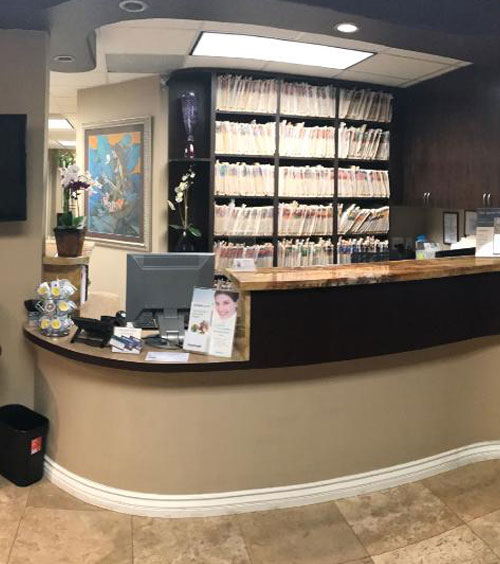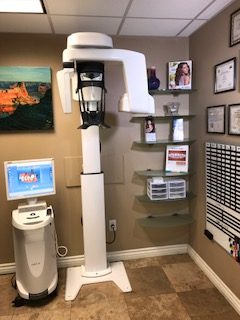Periodontal Disease And Pregnancy

Expectant mothers should be extra careful when it comes to carrying out a proper dental hygiene routine and maintaining regular dental check-ups because periodontal disease in a pregnant woman can expose her and her unborn child to risks, particularly when the mother’s gum disease is compounded with diabetes.
Gum disease starts with gingivitis, a non-destructive bacterial infection in the gingival tissue. If left untreated, the infection settles deep into gum pockets between the teeth and gums and progressively destroys tissue in the gum and underlying bone. This can cause an inflammatory reaction in the body and force the gum line to recede, giving the appearance of elongated teeth. If the disease is allowed to proliferate further, the progressive destruction of gum and bone tissue can cause teeth to shift, become loose or fall out altogether.
Because of a woman’s hormonal fluctuations during pregnancy, expectant mothers are more likely to develop gingivitis and gum disease. Research has shown that gum disease has been linked to pre-natal and post-natal complications such as preeclampsia, low birth weight and premature births.
How Are Pregnancy And Gum Disease Connected?
Periodontal disease can impact the health of an expectant mother and her unborn child. There are several sources of this connection:
Prostaglandin
– The labor-inducing compound, prostaglandin, is elevated in individuals with advanced stages of the disease. Higher levels of this compound can cause the mother to deliver her baby prematurely, resulting in low birth weight or premature birth.
- reactive protein
– Periodontal infections increase C-reactive protein, or CRP, levels which intensifies the body’s natural inflammatory response. This protein is linked to negative pregnancy outcomes for expectant mothers, such as preeclampsia and premature birth. In addition, when the periodontal bacteria enters the bloodstream, it causes the liver to produce more CRP, which can lead to inflamed or blocked arteries, blood clots, strokes and heart attacks.
- Bacteria
– Once harmful oral bacteria colonize in gum pockets, they can easily transmit to other areas of the body through the bloodstream. In pregnant women, these bacteria and the pathogens associated with the bacteria may travel to the internal mammary glands and coronary arteries.
Diagnosis and Treatment
In order to encourage the safe and healthy delivery of a baby, it is essential for pregnant women to seek treatment for their disease immediately to stop its progression.
Safe and non-surgical treatment options are available to treat periodontal disease in pregnant women. Common deep cleaning procedures include scaling and root planing to clean and remove tartar buildup and bacterial toxins from the gum pockets. Dentists will also outline proper home care instruction and recommendations for pregnant women to reduce any risks periodontal disease can cause to her or her unborn child. A few of these prevention techniques include proper dental hygiene, dietary changes, stopping smoking, and vitamin supplements.
A periodontist will conduct a thorough examination to assess the condition of a woman’s gums, teeth and jawbone first before making a diagnosis and selecting the appropriate treatment. Proper treatment of periodontal disease can reduce a woman’s risk of pregnancy complications and harmful effects caused by the disease by as much as 50%, making treatment for the disease an excellent bet for the health and happiness of yourself and your child.








